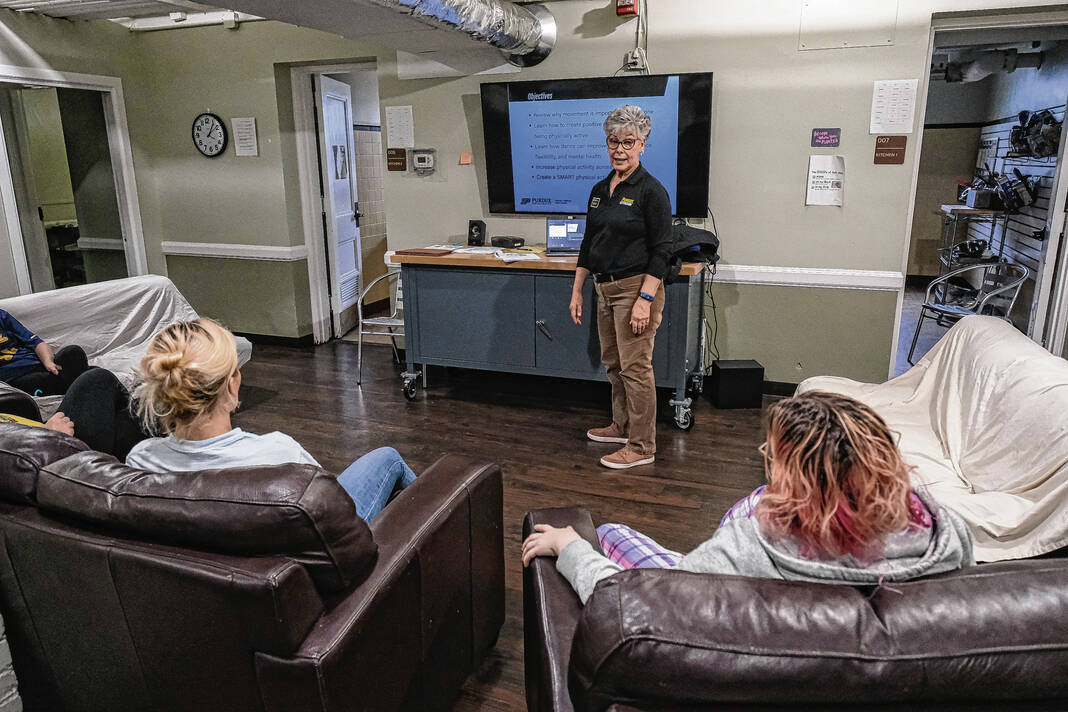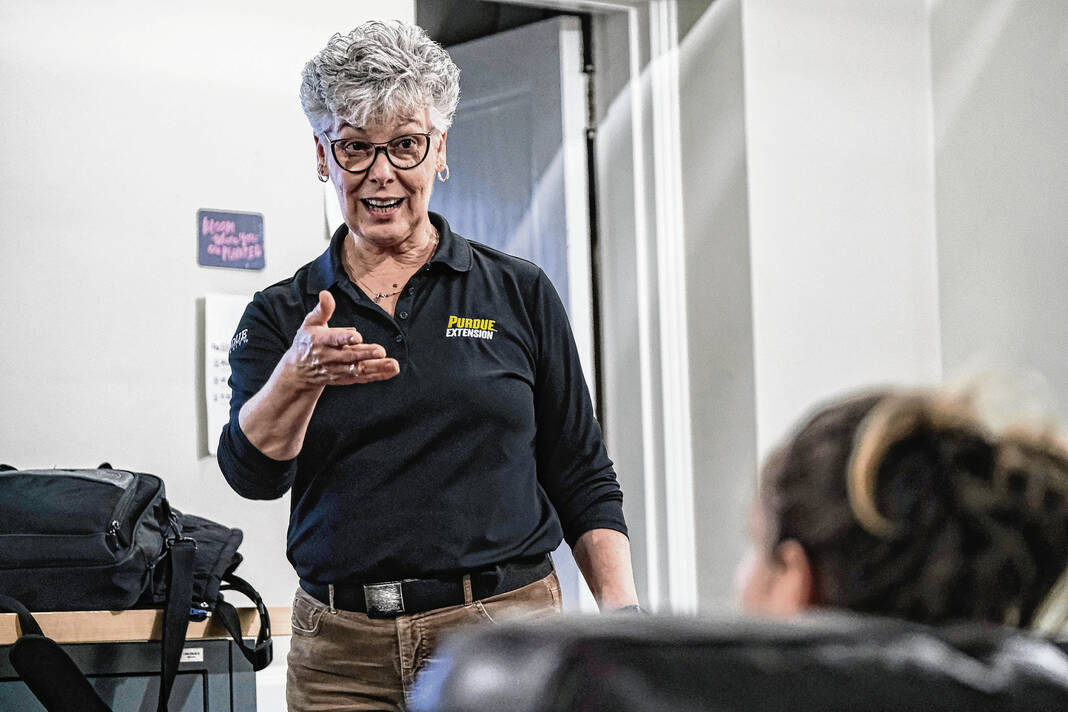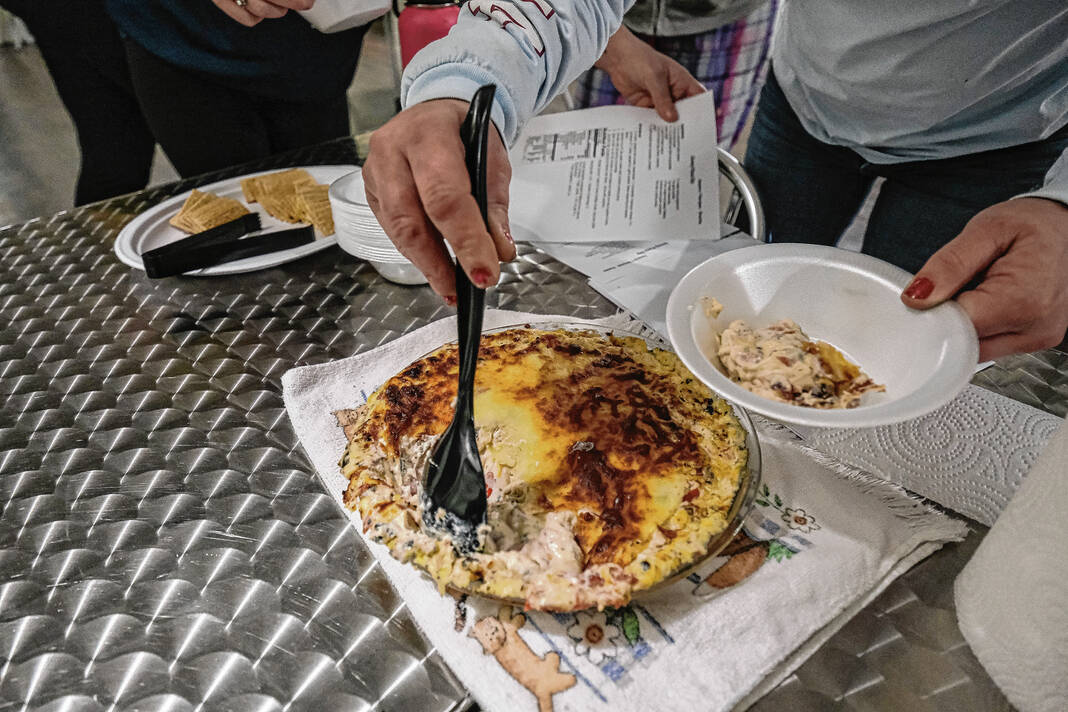
Mike Wolanin | The Republic Harriett Armstrong, health and human sciences educator at the Purdue Extension Bartholomew County, sets out a gooey pizza dip as she prepares to give a class on cooking, fitness and physical activity at the Fresh Start Recovery Center in Columbus, Ind., Wednesday, Dec. 21, 2022.
For over a year, a local educator has been helping those in recovery from substance use disorders phase back into the community drug-free by teaching life skills classes at local recovery centers and sober living homes.
In September 2021, Harriet Armstrong, health and human sciences educator at Purdue Extension Bartholomew County, started teaching classes focusing on nutrition for residents at the Fresh Start Recovery Center, an addiction recovery center in downtown Columbus for pregnant women and new mothers.
At the beginning of this year, Armstrong also started teaching similar classes that also included other topics at two recovery houses for men operated by the Alliance for Substance Abuse Progress, or ASAP, in Columbus.
So far, Armstrong has taught 96 residents at Fresh Start Recovery Center and 56 residents at the ASAP houses, she said.
“Many times, people that come out of our judicial system, there are challenges that they have to face,” Armstrong said. “Obviously, there have been things that have been going on in their lives that have helped lead them to making decisions they may wish not to make in the future. But after leaving the system, they want to make changes. I have found it rewarding to be able to help them in trying to make good positive decisions as they move forward.”
Local officials have long said that helping those who are in recovery to develop or increase healthy life skills is a critical component of the community-wide effort to help people overcome substance use disorder.
Life skills development has been included in numerous local efforts to combat substance use disorder.
The classes at Fresh Start Recovery Center are generally held weekly and have mainly focused on nutrition, Armstrong said. Some of the classes have lasted up to two hours.
If the residents complete eight or nine classes, they receive an “incentive” thanks to the financial support of community groups like the Bartholomew County Extension Homemakers, among others. The incentives have ranged from crock pots and food processors to griddles and frying pans.
“(The Fresh Start residents) have been just so receptive when I go in to talk to them,” Armstrong said. “…I try to stress (that) you’re the gatekeeper of nutrition for your family. So, understanding what you need in order to have your children be healthy is important, and they’re just very receptive.
“I will often take the ingredients in the recipe and just have them prepare the foods and talk about things that we are dealing with for the topic of that day,” Armstrong said. “And let’s face it, people enjoy eating.”
At the ASAP homes, the classes also have covered other topics besides nutrition, including money management, basic budgeting, acquiring insurance and how much debt to take on to purchase a car, among other topics, Armstrong said.
Some of the classes have included guest speakers.
“I had a guest speaker come in to address some of the issues with regard to insurance because, honestly, some of those (people) that are coming out the judicial system have some restrictions on what they are able to do, and they have to abide by that in order to be able to get their license renewed, and also, then, of course, to have insurance,” Armstrong said.
The classes at the ASAP homes have taken place about every other week, Armstrong said. Generally, about nine residents have attended each class, though the same residents haven’t attended every class, as some residents stay in the homes longer than others.
However, Armstrong described her students at the ASAP homes as “a great group of guys.”
“They’re taking time off from their work to be at the life skill classes,” she said.









